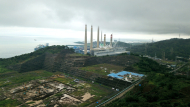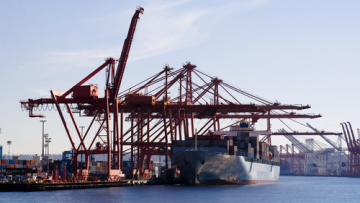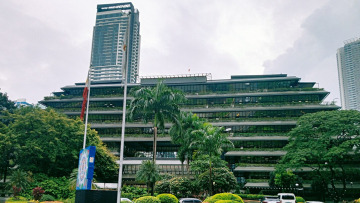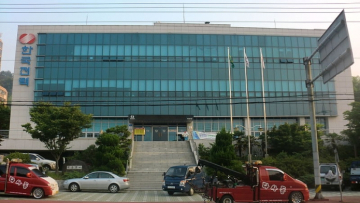Coal Havens - Asia’s biggest banks still open for coal business after COP28
Centre for Financial Accountability (CFA), Climate Risk Horizons, Global Energy Monitor (GEM), Inclusive Development International, Reclaim Finance, Recourse, Solutions for Our Climate, Toxic Bonds Network & urgewald
Will O'Sullivan, coal campaigner at BankTrack
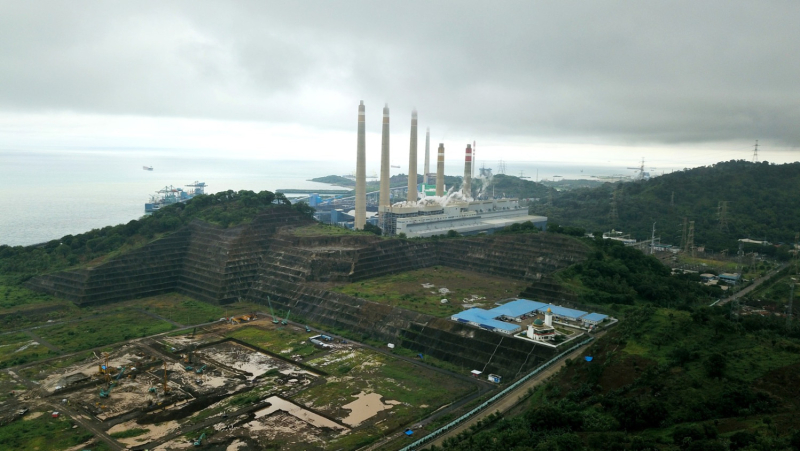
Centre for Financial Accountability (CFA), Climate Risk Horizons, Global Energy Monitor (GEM), Inclusive Development International, Reclaim Finance, Recourse, Solutions for Our Climate, Toxic Bonds Network & urgewald
Will O'Sullivan, coal campaigner at BankTrack
A new report released by BankTrack today shows that major Asian banks – including Mizuho, SMBC and MUFG in Japan, Bank Mandiri, Rakyat and Negara in Indonesia, and State Bank of India, Axis Bank and Bank of Baroda in India – are open for business in coal, the dirtiest fossil fuel. In spite of Asia being the “growth engine” of the global coal industry and the world agreeing to transition away from fossil fuels at COP28 in December 2023, most of Asia’s major banks have either very weak or non-existent exclusions of coal from their investment portfolios, leaving the door open to continued investment in climate destruction.
Half of the 30 Asian banks analysed still have no restrictions on coal finance, and the rest have only weak restrictions. Other findings:
-
"Captive” coal power in Indonesia is expanding, and therefore could attract growing finance and undermine climate mitigation,(1)
-
Banks' money is being redirected away from specific projects and towards the companies behind them, with corporate lending and underwriting replacing project finance, and
-
Domestic and regional financiers, as well as private equity, are playing a growing role in coal.
Coal Havens surveys the coal policies (or lack thereof) of 30 major banks across India, Indonesia, Japan, Malaysia, Philippines, Singapore, South Korea, Taiwan and Thailand; banks that have over USD 8 trillion in assets under management collectively.(2) Their coal exclusion policies were evaluated by BankTrack using the criteria from Reclaim Finance’s Coal Policy Tracker, which cover banks’ finance policies on coal projects, companies’ expansion plans, whether the bank applies thresholds on coal mining and coal power companies, its coal finance phase-out strategy and the exclusion of metallurgical coal.(3)
Will O’Sullivan, climate campaigner at BankTrack, said: “The shrinking corners of the coal industry are still having money pumped into them by some of the biggest banks in Asia. The Japanese megabanks Mizuho, MUFG and SMBC, Indonesia’s “Big Four”, Banks Mandiri, Negara, Rakyat and Central Asia, and Singapore’s “Big Three”, DBS, OCBC and UOB, among others, have totally inadequate coal policies while they actively finance climate destruction – long after they should have exited coal. All these banks should urgently and permanently adopt robust coal exclusion policies, and transition rapidly to renewable energy investment.”
Anirban Bhattacharya, team lead on national finance at Centre for Financial Accountability, said: “Our own research finds that national financial institutions account for 93% of the sanctioned loans to coal-based power plants in India. And the government-owned banks, including State Bank of India, still are the major lenders to privately owned coal plants. About 25-35% of Indian Bank loans are exposed to carbon-intensive sectors including coal as per Moody. Even a recent survey of the Reserve Bank of India shows that a majority of the banks have not related their climate-related financial disclosures with any internationally accepted framework. While it is good that RBI is surveying the modalities of green financing, it must take on much more of a regulatory than an advisory role if we are to be true to our climate responsibilities.”
The report finds three trends in how coal is still getting money, in other words, three havens from the energy transition: 1) finance is increasing for “captive” coal power (coal-fired power that is off of the energy grid and used for industrial activities like smelting), 2) project-specific finance is being dropped in favour of corporate lending and underwriting, and 3) coal project developers are increasingly looking to domestic and regional banks and private equity investors to finance their operations.
While the report focuses on Asian banks’ policy positions, it also highlights that major US and European financiers are still investing in coal: Barclays, Citi, Standard Chartered, Deutsche Bank and others are exploiting the relatively opaque and unscrutinised finance routes of corporate lending and underwriting, to finance the mining and burning of coal across the region.
Sagar Asapur, sustainable finance analyst at Climate Risk Horizons, said: “India is poised to become the clean energy leader of tomorrow, harnessing solar, wind, and energy storage at some of the world's lowest rates. To align with this transition, banks should focus on supporting renewables while swiftly enhancing energy efficiency and phasing out their investments in new coal power projects. New coal is no longer needed from an electricity demand perspective, nor competitive financially and is of course incompatible with a 1.5°C world.”
Bhima Yudhistira, executive director of CELIOS-Indonesia, said: “Banks in the Asian region are seen as the financing institutions that have been the slowest to adopt various internal policies to avoid financing coal mining and coal power. It is regrettable that several banks in Asia, especially developing countries like Indonesia, are still financing the development of coal power to support industrial areas, when foreign banks refuse to provide financing due to concerns about the contradiction of Net Zero commitments and the risk of stranded assets. The lack of efforts by banks to carry out portfolio transitions is also due to the fact that the revision of Indonesia’s Green Taxonomy has not yet been implemented at the national level, even though there is already a Taxonomy in the Asean region.”
Danielle Koh, policy analyst at Reclaim Finance, said: "Despite the lip service paid to fossil fuel phaseout at COP28, very few Asian banks have committed to end finance for coal expansion, and the commitments that do exist are full of loopholes. This report underscores the need for regulatory pressure at the national and international levels to effectively stem the flow of finance to support the expansion of the entire coal industry, including mining. The good news is that the falling costs of renewables in Southeast Asia offers a market incentive for investors. The pivot to renewable energy investments must take place now to meet the region's climate goals."
Contact
Will O’Sullivan, Climate campaigner at BankTrack, WhatsApp/Signal: +44784 767 4787, Email: will@banktrack.org
See more details at BankTrack’s End Coal Finance page.
Notes:
- “Captive coal-fired power” is not connected to grid infrastructure, and is used to power specific industrial facilities such as metal smelters. See here for research on Indonesia’s emerging captive coal-fired power.
- Banks included in the report: in India, Axis Bank, Bank of Baroda, Bank of India, EXIM Bank of India, Industrial Development Bank of India (IDBI), Punjab and Sind Bank, State Bank of India (SBI), Union Bank of India; in Indonesia, Bank Central Asia, Bank Mandiri, Bank Negara Indonesia, Bank Rakyat Indonesia, Permata Bank, BankBTPN; in Japan, SMBC, Mizuho, MUFG; in Malaysia, CIMB and Maybank; in the Philippines, Rizal Commercial Banking Corporation (RCBC), Banco de Oro (BDO), Bank of the Philippine Islands; in Singapore, OCBC, DBS, UOB; in South Korea, Hana Bank; in Taiwan, CTBC; and in Thailand, Bangkok Bank. (China was excluded as a special case, when it comes to coal power and mining project development.)
- The bedrock of data for this research includes Global Energy Monitor’s coal plant tracker and coal project finance tracker, the Toxic Bonds Network’s Dirty 30 database, CenFA’s data corner and Urgewald’s Global Coal Exit List



